Projector
Monitor
Lighting
Digital Display
Job References
This site uses cookies. By continuing to browse the site you are agreeing to our use of cookies, you can also manage preferences.
This site uses cookies. By continuing to browse the site you are agreeing to our use of cookies, you can also manage preferences.
Projector
Monitor
Lighting
Digital Display
Job References
Projector
Monitor
Lighting
Digital Display
Job References
Knowledge Center SupportLike all other industries that deal with lighting, the projector industry has spent the last decade embracing the use of LEDs in their products in order to take full advantage of the benefits that the now widespread technology offers. Yet while some consumers are just now getting introduced to projectors that use LED lights, the industry itself is already taking the next step in improving upon the design of LED projectors with the release of 4LED projectors. But what exactly are 4LED projectors?
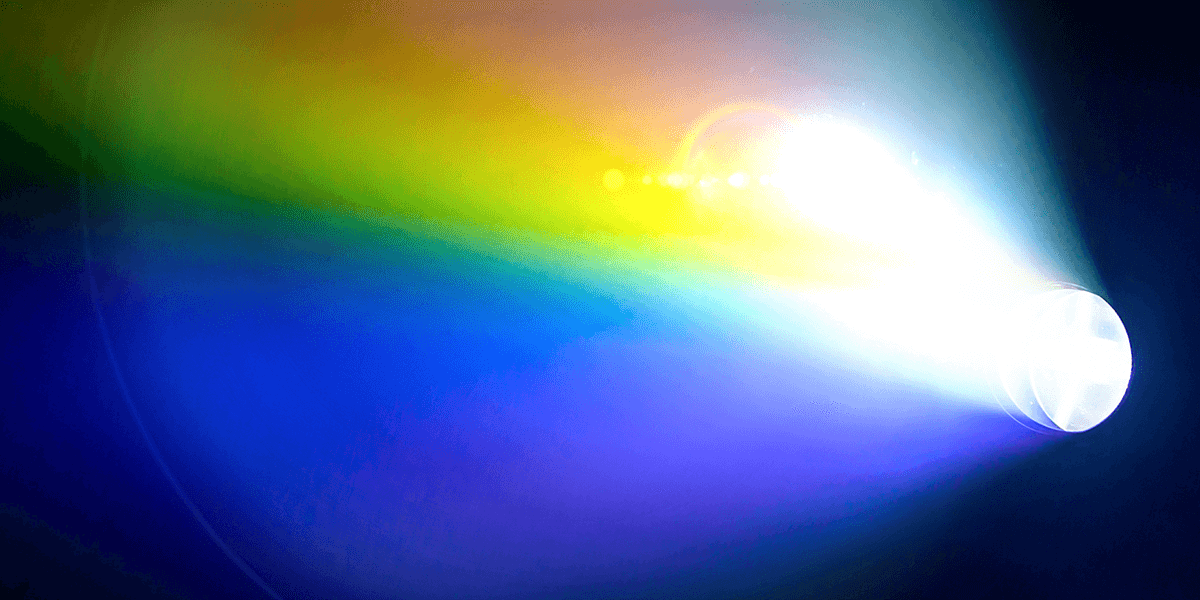
Before we can begin talking about 4LED projectors, we must first start by introducing the basics of LED projectors along with describing their path towards 4LED technology:
Simply put LED projectors are projectors whose light sources are LED lights assembled on chips. Whereas traditional projectors use a single incandescent bulb as their light source whose light is then passed through a color wheel to produce its primary colors, LED projectors use individual lights for each primary color. The most common type of LED projector on the market that uses this type of design is the 3LED projector, which we will discuss later.
Knowing what distinguishes LED projectors from traditional projectors, what are the benefits of using an LED projector? Some of the main benefits of using an LED projector are the same one’s users of household light bulbs are familiar with: their outstanding lifespan and energy efficiency. On average, an LED projector provides up to 20,000 hours of use under normal settings while hitting up to 30,000 hours of use if projecting under energy-saving modes. This is almost 10 to 15 times the lifespan of a traditional projector’s lamp, helping LED projectors avoid the maintenance costs associated with lamp replacement.
In terms of the quality of LED projectors, the color range of the LED lights used in LED projectors tend to cover, if not eclipse, the entire REC. 709 color gamut used in high-definition video. This means purer, more saturated colors with greater color contrast when compared to the lamps used in traditional projectors, making LED projectors ideal for watching Blu-Ray movies or playing video games with artificially vivid colors.
Another major factor for choosing an LED projector is that its engineering supports a more compact design than traditional projectors, with smaller form factors that allow some LED projectors to be portable. This is further complemented by the fact that LED lights are less susceptible to the effects of environmental factors (such as dust) than traditional bulbs and also do not emit heat so that cooling is not a factor. When combined, these three factors make the technology behind LED projectors ideal for designing portable projectors for outdoor use.
An additional plus to using an LED projector is due to its use of LED lights that there is no warm-up period when turning on an LED projector. Instead the video is able to be shown at its set brightness.
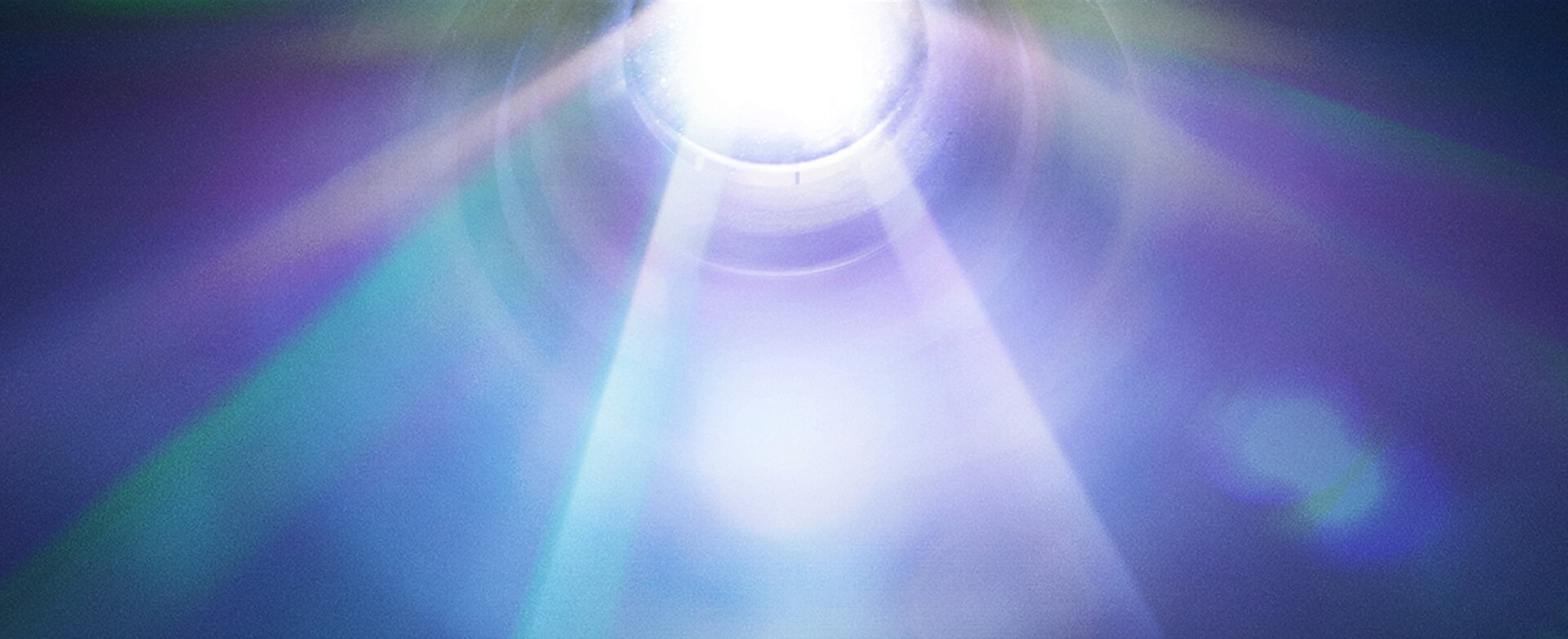
As mentioned above, the majority of LED projectors on the market are what we call 3LED projectors. 3LED projectors are projectors whose light sources are individual LED lights for each of the three primary colors in the RGB color system: red, green, and blue. These lights then combine in some variation to construct all the colors in an image and are then directed towards the projector lens.
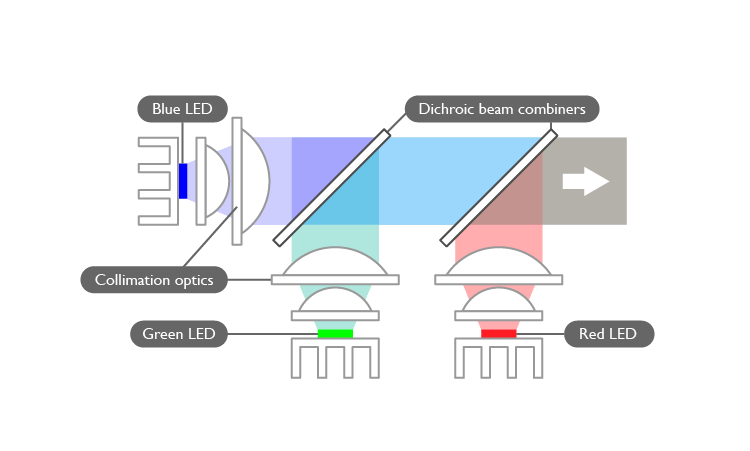
One of the key features in 3LED projectors that will be important in our discussion of 4LED projectors, is that the green light in a 3LED projector is actually a blue light that is converted to green via a process that “excites” a ceramic phosphor medium within the structure of the projector. The rationale for using a converted green light is that in an RGB color system, green light is the light that is most responsible for brightness to the naked eye. Yet the brightness of a pure green LED, as opposed to a converted green LED, is typically not enough to produce the images required from a projector. By using a converted green LED instead, the brightness of the green is strengthened as a result of the effects of the ceramic phosphor and thus ramps up the overall brightness of the image to a standard that is acceptable for projectors. The development of 4LED projectors is directly related to this concept as it is the next step in LED projector technology meant to improve upon the brightness and color saturation of the 3LED design.
By definition 4LED projectors are LED projectors that add an additional blue “pump” LED to the 3LED ecosystem whose light is also converted to green via the ceramic phosphor medium in order to amplify the overall output of green light. By adding this separate light, the output of green light is increased by 40% which in turn leads to an 8% to 12% increase in overall brightness when compared to a 3LED projector. This type of design also helps keep the surface area of the original three LEDs unchanged thereby avoiding both the need to significantly increase the projector size to accommodate larger LEDs and the additional heating that would be produced by those LEDs which would otherwise affect the LED’s lifespan.
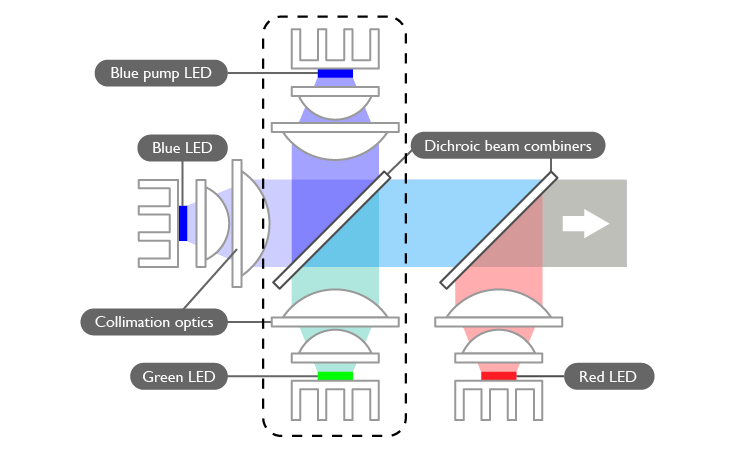
Given all of this, what makes BenQ’s 4LED projectors stand out from the crowd? Beyond the benefits of LED technology discussed above, BenQ offers a slate of features which help optimize the LED projector viewing experience.
For our LED projectors in general, BenQ offers an auto color calibration feature that allows for more consistent color during the inevitable decay of the LEDs over the course of the projector’s lifespan. Normally as projector use continues, the LED lights in the projector tend to deteriorate unevenly so that one light (usually the red LED) might deteriorate far more rapidly than the others, causing a greenish-blue tint to the resulting image. BenQ’s auto color calibration prevents this phenomenon by adjusting the other LEDs accordingly, ensuring a consistency in color throughout the lifespan of the projector.
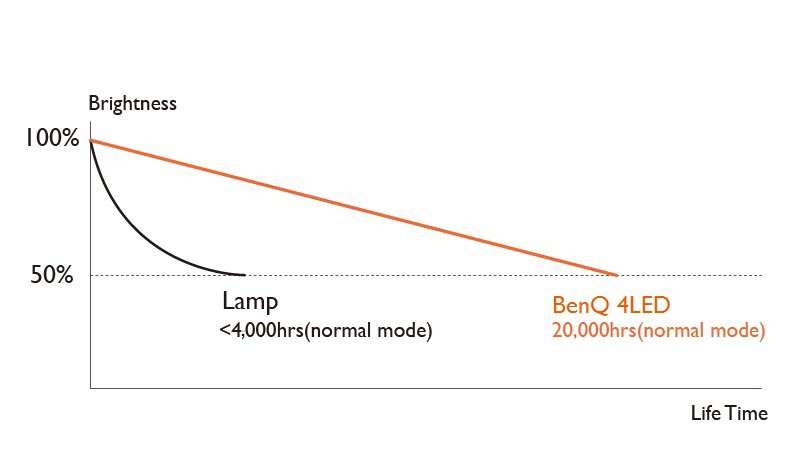
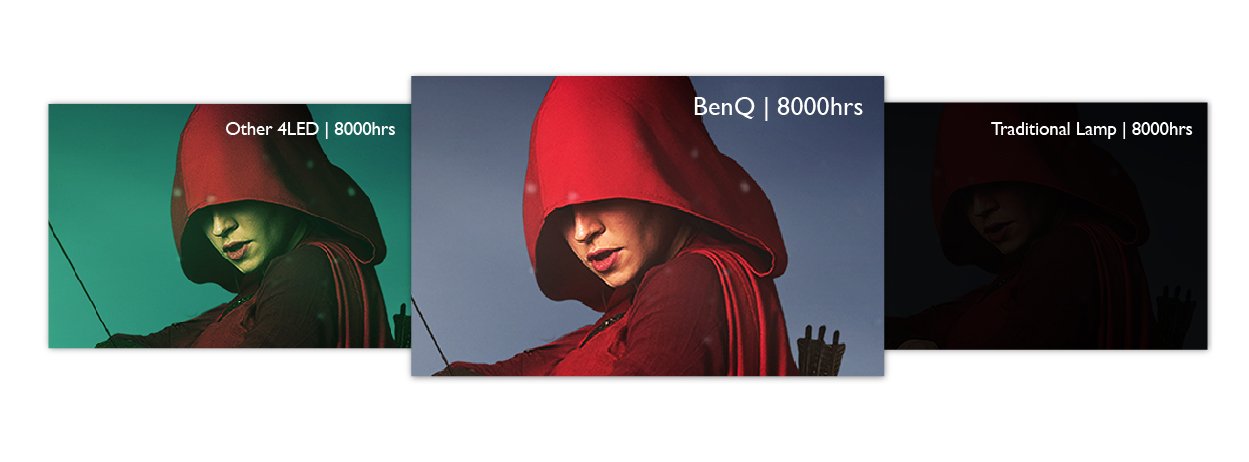
Thanks for your feedback!